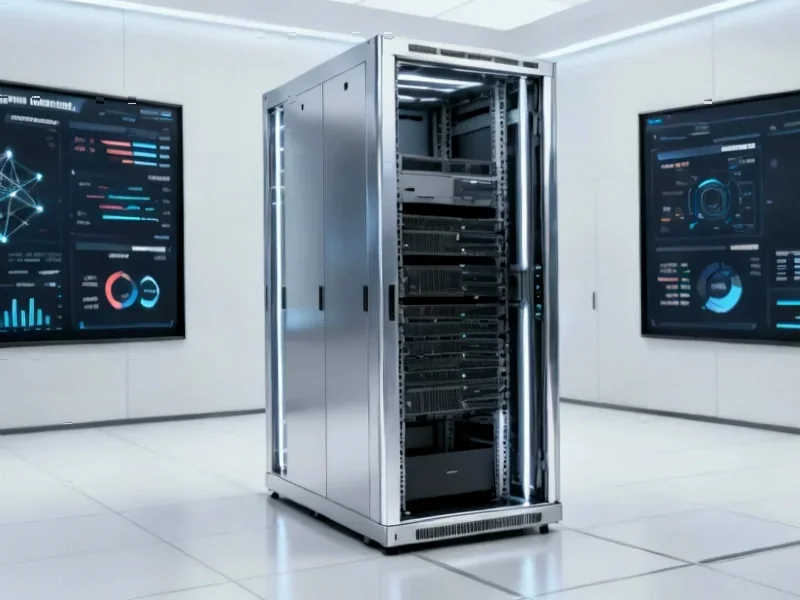According to Sifted, Datadog alumni Gabriel-James Safar and Sébastien Deprez have raised a $10 million seed round for their new AI observability startup Tsuga. The funding was led by General Catalyst with participation from Singular and angels including Alan cofounder Charles Gorintin. The Paris-based founders previously sold their startup Madumbo to Datadog in 2018, where their product reportedly generated eight-figure revenues within a year. After leaving Datadog in 2023 for personal breaks, they’re now challenging their former employer with a “bring your own cloud” approach that keeps customer data in their own environments. Tsuga has already onboarded scaleups and public companies in regulated sectors and plans to grow its 25-person team.
Datadog vs the alumni
Here’s what’s fascinating about this story. These aren’t just random entrepreneurs jumping into observability – they’re former Datadog insiders who actually built and scaled key products there. Their previous startup Madumbo was acquired by Datadog back when it was still pre-IPO, and Safar claims their product was generating eight-figure revenues within a year. That’s serious credibility in a space where trust and technical depth matter enormously.
But why leave a $50 billion company you helped build? Both founders took what sounds like genuinely meaningful breaks – Safar for family and travel, Deprez for hands-on training in everything from plumbing to carpentry. They literally tried to “find the meaning of life” and, as Safar puts it, “didn’t find it, so we created another company.” That kind of founder journey suggests this isn’t just another opportunistic startup – these people have been thinking deeply about what they want to build and why.
The bring your own cloud advantage
Tsuga’s key innovation is what they call “bring your own cloud” – instead of forcing customers to send all their data to external servers, Tsuga deploys observability clusters directly into customers’ existing cloud environments. This is basically the opposite of how traditional observability platforms work, and it addresses three huge pain points simultaneously.
First, cost. Observability gets expensive fast when you’re paying to move and store massive data volumes externally. Second, security and governance concerns – regulated industries like banking and healthcare get understandably nervous about sending sensitive data outside their controlled environments. Third, as AI workloads generate even more data, the traditional pricing model becomes increasingly unsustainable.
Think about it: if you’re a large enterprise already spending millions on cloud infrastructure, why would you want to pay again to move that data somewhere else just to analyze it? Tsuga’s approach essentially says “we’ll come to your data instead of making your data come to us.” That’s a fundamentally different value proposition.
The observability market shakeup
The observability space is crowded with giants – not just Datadog’s $50 billion behemoth, but also Dynatrace, Splunk, and the cloud providers themselves. So can a startup really compete? Well, history suggests that when insiders who understand the limitations of incumbent solutions strike out on their own, they often identify real gaps in the market.
What’s interesting is that Tsuga isn’t trying to beat Datadog at its own game. They’re changing the game entirely by targeting the customers for whom traditional observability is most painful – large enterprises with massive data volumes and strict regulatory requirements. These are exactly the customers who have the budget to pay for better solutions but are currently underserved because existing options don’t fit their security or cost constraints.
And let’s be real – when your former product was generating eight-figure revenues at the company you’re now competing against, you probably have some insights into where the weaknesses are. The question is whether they can execute fast enough before the incumbents respond.
What comes next
With $10 million in seed funding and design partners already onboard, Tsuga appears to be moving quickly. They’re hiring, particularly in engineering and go-to-market roles, and they’ve already landed both scaleups and publicly listed companies in regulated industries.
The timing might be perfect. As enterprises pour money into AI systems that generate unprecedented data volumes, the old observability pricing models are starting to look increasingly broken. If Tsuga can deliver on their promise of secure, cost-effective observability without the data transfer headaches, they could capture a meaningful slice of the enterprise market that current players are struggling to serve.
Basically, we’re watching two experienced operators who know exactly where the cracks are in a massive market. They’ve built successful products before, they understand the space intimately, and they’re attacking a real pain point that affects the most valuable customers. That’s a recipe worth paying attention to.




